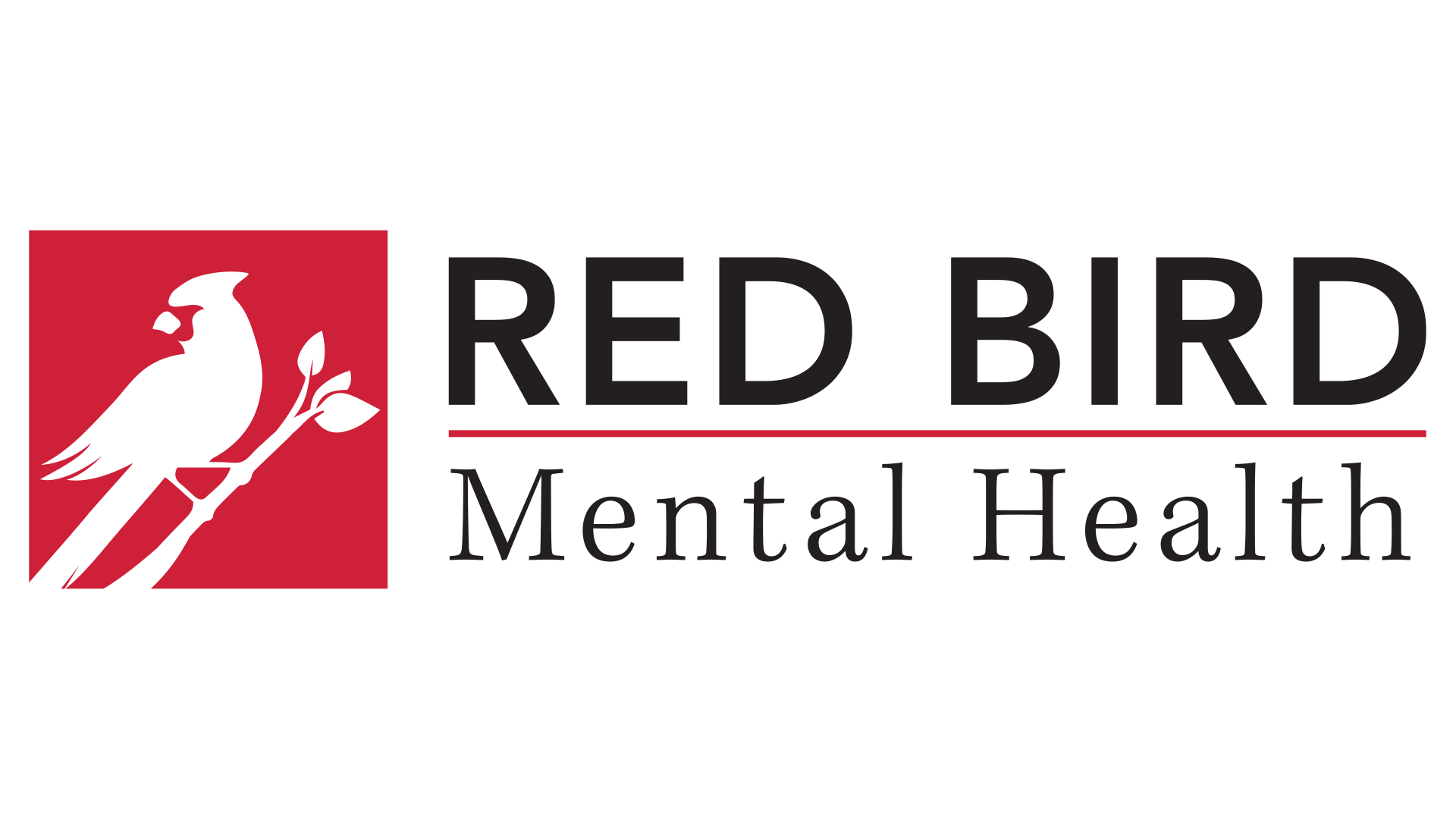Play Therapy
What is play therapy?
Play therapy is a therapeutic approach where children express themselves and process emotions through play, rather than traditional talk therapy. Since kids often struggle to articulate their feelings with words, play becomes their primary language. It involves using toys, games, art, and other creative activities to help children explore their emotions, understand challenges, and develop problem-solving skills.
Benefits for Children:
1. Emotional Expression:
Play therapy allows children to safely express their emotions like sadness, anger, or fear, which they may not yet have the vocabulary to explain.
2. Social Skills Development:
Through role-playing and interactive games, children can learn important social skills such as sharing, cooperation, and conflict resolution.
3. Coping Mechanisms:
It helps children develop healthy coping strategies for dealing with stress, anxiety, or trauma.
4. Self-Esteem Boost:
As children successfully navigate challenges during play, it enhances their sense of competence and confidence.
Benefits for Parents:
1. Deeper Understanding:
Play therapy provides insights into what might be troubling a child, from family dynamics to personal fears, helping parents better understand their child’s emotional world.
2. Improved Communication:
Parents often learn new ways to communicate with their child and understand their emotional needs. This can strengthen the parent-child bond.
3. Tools for Support:
Parents gain strategies to support their child’s emotional development and navigate behavioral challenges at home, giving them confidence in managing tough situations.
Overall, play therapy is like a bridge between a child’s inner world and the parents’ ability to support them, creating a stronger, more empathetic relationship. It’s fun and therapeutic—a win-win!
When is play therapy most helpful?
Play therapy is especially helpful in a variety of situations, particularly when children are dealing with emotional, behavioral, or developmental challenges. Here are some key moments when play therapy can be particularly beneficial:
1. During Times of Change or Stress:
- Divorce or family separation
- Moving to a new home or school
- The birth of a sibling
- Loss of a loved one (death of a family member, pet, etc.)
- Natural disasters or traumatic events
Play therapy helps children process and cope with these changes in a healthy way, providing them a safe space to work through their emotions.
2. Behavioral Issues:
If a child is displaying behaviors like aggression, tantrums, or withdrawal, play therapy can help uncover the underlying emotions or fears causing these actions. It teaches children better ways to cope and express themselves.
3. Emotional or Mental Health Struggles:
- Anxiety or fears (e.g., fear of the dark, separation anxiety)
- Depression or sadness
- Self-esteem issues
- Anger management challenges
Play therapy allows children to explore and express these emotions in a non-threatening, playful way, helping them gain control over their feelings.
4. Trauma or Abuse:
Children who have experienced trauma (physical, emotional, or sexual abuse, neglect, or witnessing violence) may not have the words to express what they’ve gone through. Play therapy offers a safe and gentle way for them to process traumatic experiences and begin healing.
5. Developmental Delays or Learning Difficulties:
Play therapy can support children with ADHD, autism spectrum disorder, or other developmental concerns. It encourages social interaction, communication, and emotional regulation, helping children improve their ability to engage with the world around them.
6. Fostering Better Parent-Child Relationships:
Play therapy can be helpful when there are communication barriers between parents and children. It helps parents understand their child’s emotional needs and strengthens the parent-child relationship through shared activities.
In short, play therapy is most helpful when children need a safe space to express and work through their emotions, whether due to life changes, behavioral challenges, mental health concerns, or past trauma. It provides them with the tools to better understand themselves and navigate their emotions with confidence.
What are the different theories and techniques used in play therapy and how do they benefit individuals?
Child-Centered Play Therapy (CCPT)
What it is: Child-Centered Play Therapy (CCPT) is a therapeutic approach based on the belief that children are capable of self-healing when given the right environment. In this therapy, the therapist provides a safe, accepting, and non-judgmental space where the child can express themselves through play. The therapist’s role is to listen, observe, and reflect the child’s emotions without directing the play.
How it works: The therapist allows the child to lead the play, using toys, art, or other materials to express feelings, solve problems, or recreate situations. The therapist doesn’t impose their own agenda; instead, they create a supportive environment for the child to explore their emotions at their own pace.
Benefits:
- Builds trust between the child and therapist
- Helps children process emotions like fear, anger, or grief
- Encourages self-expression and emotional regulation
- Fosters a sense of agency and control, as the child is the one leading the sessions
What is play therapy?
Play therapy is a therapeutic approach where children express themselves and process emotions through play, rather than traditional talk therapy. Since kids often struggle to articulate their feelings with words, play becomes their primary language. It involves using toys, games, art, and other creative activities to help children explore their emotions, understand challenges, and develop problem-solving skills.
Benefits for Children:
1. Emotional Expression:
Play therapy allows children to safely express their emotions like sadness, anger, or fear, which they may not yet have the vocabulary to explain.
2. Social Skills Development:
Through role-playing and interactive games, children can learn important social skills such as sharing, cooperation, and conflict resolution.
3. Coping Mechanisms:
It helps children develop healthy coping strategies for dealing with stress, anxiety, or trauma.
4. Self-Esteem Boost:
As children successfully navigate challenges during play, it enhances their sense of competence and confidence.


1. Emotional Expression:
Play therapy allows children to safely express their emotions like sadness, anger, or fear, which they may not yet have the vocabulary to explain.
3. Coping Mechanisms:
It helps children develop healthy coping strategies for dealing with stress, anxiety, or trauma.
2. Social Skills Development:
Through role-playing and interactive games, children can learn important social skills such as sharing, cooperation, and conflict resolution.
4. Self-Esteem Boost:
As children successfully navigate challenges during play, it enhances their sense of competence and confidence.

1. Emotional Expression:
Play therapy allows children to safely express their emotions like sadness, anger, or fear, which they may not yet have the vocabulary to explain.
2. Social Skills Development:
Through role-playing and interactive games, children can learn important social skills such as sharing, cooperation, and conflict resolution.
3. Coping Mechanisms:
It helps children develop healthy coping strategies for dealing with stress, anxiety, or trauma.
4. Self-Esteem Boost:
As children successfully navigate challenges during play, it enhances their sense of competence and confidence.
Benefits for Parents:

1. Deeper Understanding:
Play therapy provides insights into what might be troubling a child, from family dynamics to personal fears, helping parents better understand their child’s emotional world.
2. Improved Communication:
Parents often learn new ways to communicate with their child and understand their emotional needs. This can strengthen the parent-child bond.
3. Tools for Support:
Parents gain strategies to support their child’s emotional development and navigate behavioral challenges at home, giving them confidence in managing tough situations.
Overall, play therapy is like a bridge between a child’s inner world and the parents’ ability to support them, creating a stronger, more empathetic relationship. It’s fun and therapeutic—a win-win!

1. Deeper Understanding:
Play therapy provides insights into what might be troubling a child, from family dynamics to personal fears, helping parents better understand their child’s emotional world.
2. Improved Communication:
Parents often learn new ways to communicate with their child and understand their emotional needs. This can strengthen the parent-child bond.
3. Tools for Support:
Parents gain strategies to support their child’s emotional development and navigate behavioral challenges at home, giving them confidence in managing tough situations.
Overall, play therapy is like a bridge between a child’s inner world and the parents’ ability to support them, creating a stronger, more empathetic relationship. It’s fun and therapeutic—a win-win!
When is play therapy most helpful?
Play therapy is especially helpful in a variety of situations, particularly when children are dealing with emotional, behavioral, or developmental challenges. Here are some key moments when play therapy can be particularly beneficial:
1. During Times of Change or Stress:
- Divorce or family separation
- Moving to a new home or school
- The birth of a sibling
- Loss of a loved one (death of a family member, pet, etc.)
- Natural disasters or traumatic events
Play therapy helps children process and cope with these changes in a healthy way, providing them a safe space to work through their emotions.
2. Behavioral Issues:
If a child is displaying behaviors like aggression, tantrums, or withdrawal, play therapy can help uncover the underlying emotions or fears causing these actions. It teaches children better ways to cope and express themselves.


1. During Times of Change or Stress:
- Divorce or family separation
- Moving to a new home or school
- The birth of a sibling
- Loss of a loved one (death of a family member, pet, etc.)
- Natural disasters or traumatic events
2. Behavioral Issues:
If a child is displaying behaviors like aggression, tantrums, or withdrawal, play therapy can help uncover the underlying emotions or fears causing these actions. It teaches children better ways to cope and express themselves.
Play therapy helps children process and cope with these changes in a healthy way, providing them a safe space to work through their emotions.

1. During Times of Change or Stress:
- Divorce or family separation
- Moving to a new home or school
- The birth of a sibling
- Loss of a loved one (death of a family member, pet, etc.)
- Natural disasters or traumatic events
Play therapy helps children process and cope with these changes in a healthy way, providing them a safe space to work through their emotions.
2. Behavioral Issues:
If a child is displaying behaviors like aggression, tantrums, or withdrawal, play therapy can help uncover the underlying emotions or fears causing these actions. It teaches children better ways to cope and express themselves.

3. Emotional or Mental Health Struggles:
- Anxiety or fears (e.g., fear of the dark, separation anxiety)
- Depression or sadness
- Self-esteem issues
- Anger management challenges
Play therapy allows children to explore and express these emotions in a non-threatening, playful way, helping them gain control over their feelings.
4. Trauma or Abuse:
Children who have experienced trauma (physical, emotional, or sexual abuse, neglect, or witnessing violence) may not have the words to express what they’ve gone through. Play therapy offers a safe and gentle way for them to process traumatic experiences and begin healing.

3. Emotional or Mental Health Struggles:
- Anxiety or fears (e.g., fear of the dark, separation anxiety)
- Depression or sadness
- Self-esteem issues
- Anger management challenges
Play therapy allows children to explore and express these emotions in a non-threatening, playful way, helping them gain control over their feelings.
4. Trauma or Abuse:
Children who have experienced trauma (physical, emotional, or sexual abuse, neglect, or witnessing violence) may not have the words to express what they’ve gone through. Play therapy offers a safe and gentle way for them to process traumatic experiences and begin healing.
5. Developmental Delays or Learning Difficulties:
Play therapy can support children with ADHD, autism spectrum disorder, or other developmental concerns. It encourages social interaction, communication, and emotional regulation, helping children improve their ability to engage with the world around them.
6. Fostering Better Parent-Child Relationships:
Play therapy can be helpful when there are communication barriers between parents and children. It helps parents understand their child’s emotional needs and strengthens the parent-child relationship through shared activities.
In short, play therapy is most helpful when children need a safe space to express and work through their emotions, whether due to life changes, behavioral challenges, mental health concerns, or past trauma. It provides them with the tools to better understand themselves and navigate their emotions with confidence.


5. Developmental Delays or Learning Difficulties:
Play therapy can support children with ADHD, autism spectrum disorder, or other developmental concerns. It encourages social interaction, communication, and emotional regulation, helping children improve their ability to engage with the world around them.
6. Fostering Better Parent-Child Relationships:
Play therapy can be helpful when there are communication barriers between parents and children. It helps parents understand their child’s emotional needs and strengthens the parent-child relationship through shared activities.
In short, play therapy is most helpful when children need a safe space to express and work through their emotions, whether due to life changes, behavioral challenges, mental health concerns, or past trauma. It provides them with the tools to better understand themselves and navigate their emotions with confidence.

5. Developmental Delays or Learning Difficulties:
Play therapy can support children with ADHD, autism spectrum disorder, or other developmental concerns. It encourages social interaction, communication, and emotional regulation, helping children improve their ability to engage with the world around them.
6. Fostering Better Parent-Child Relationships:
Play therapy can be helpful when there are communication barriers between parents and children. It helps parents understand their child’s emotional needs and strengthens the parent-child relationship through shared activities.
In short, play therapy is most helpful when children need a safe space to express and work through their emotions, whether due to life changes, behavioral challenges, mental health concerns, or past trauma. It provides them with the tools to better understand themselves and navigate their emotions with confidence.
Child-Centered Play Therapy (CCPT)

What it is: Child-Centered Play Therapy (CCPT) is a therapeutic approach based on the belief that children are capable of self-healing when given the right environment. In this therapy, the therapist provides a safe, accepting, and non-judgmental space where the child can express themselves through play. The therapist’s role is to listen, observe, and reflect the child’s emotions without directing the play.
How it works: The therapist allows the child to lead the play, using toys, art, or other materials to express feelings, solve problems, or recreate situations. The therapist doesn’t impose their own agenda; instead, they create a supportive environment for the child to explore their emotions at their own pace.
Benefits:
- Builds trust between the child and therapist
- Helps children process emotions like fear, anger, or grief
- Encourages self-expression and emotional regulation
- Fosters a sense of agency and control, as the child is the one leading the sessions

What it is: Child-Centered Play Therapy (CCPT) is a therapeutic approach based on the belief that children are capable of self-healing when given the right environment. In this therapy, the therapist provides a safe, accepting, and non-judgmental space where the child can express themselves through play. The therapist’s role is to listen, observe, and reflect the child’s emotions without directing the play.
How it works: The therapist allows the child to lead the play, using toys, art, or other materials to express feelings, solve problems, or recreate situations. The therapist doesn’t impose their own agenda; instead, they create a supportive environment for the child to explore their emotions at their own pace.
Benefits:
- Builds trust between the child and therapist
- Helps children process emotions like fear, anger, or grief
- Encourages self-expression and emotional regulation
- Fosters a sense of agency and control, as the child is the one leading the sessions

What it is: Child-Centered Play Therapy (CCPT) is a therapeutic approach based on the belief that children are capable of self-healing when given the right environment. In this therapy, the therapist provides a safe, accepting, and non-judgmental space where the child can express themselves through play. The therapist’s role is to listen, observe, and reflect the child’s emotions without directing the play.
How it works: The therapist allows the child to lead the play, using toys, art, or other materials to express feelings, solve problems, or recreate situations. The therapist doesn’t impose their own agenda; instead, they create a supportive environment for the child to explore their emotions at their own pace.
Benefits:
- Builds trust between the child and therapist
- Helps children process emotions like fear, anger, or grief
- Encourages self-expression and emotional regulation
- Fosters a sense of agency and control, as the child is the one leading the sessions
Teen & Young Adult Group (Ages: 14-26)
Program Details:
- Duration: 8 sessions
- Focus Areas: Trauma psychoeducation, emotional regulation, cognitive coping skills, individualized trauma narratives, in vivo exposure, group processing, and closure.
Learn More About Mental Health
Post-Traumatic Stress Disorder (PTSD)
PTSD is characterized by symptoms that often develop after we go through a traumatic incident. These symptoms can include feelings of depression and anxiety, intense fear, difficulty relaxing, constantly looking for potential threats, intrusive memories of the trauma, nightmares, and difficulty concentrating. Our therapists are trained in state-of-the-art trauma therapy, helping clients to improve their symptoms and ability to function in everyday life.
Depression
Do you feel sad or depressed much of the time? Are you exhausted, despite getting enough sleep? Do you feel as though you have lost your motivation to accomplish your goals, succeed at work, parent, etc? Depression is characterized by these feelings, as well as changes in your eating and sleeping habits, difficulty concentrating, and feeling worthless or not good enough. Sometimes, depression can be associated with thoughts of suicide or self-harm. Our therapists provide support to help you feel better and enjoy life again.
Work/Life Balance
Do you struggle with the ability to find the balance between your marriage, parenting, work, friendships, interests, and hobbies? In the last few years, as work has moved from in the office to remote, it has been hard to create a boundary between work and your personal life. We can help to create a plan to help restore a healthy work and personal life. We can work with you to put that plan into action, setting small goals, and leading toward creating a more meaningful and fulfilling life.
LGBTQI+
We are allies of the LGBTIQ+ community and recognize the diverse needs and support individuals need. We have worked with clients in the process of transitioning their gender, who are looking for support with managing the effects of hormones, changes in relationships, and community support. We understand while individuals may come into counseling for any number of reasons not related to sexuality, such as depression, anxiety, and trauma, the LGBTIQ+ community has its own set of unique challenges as well. We are here to support our clients and provide a safe space to cope with stigma, discrimination, and mental health issues.
Relationships Problems
If you are struggling in your relationship, therapy can help! We address communication issues, emotional and physical intimacy, and creating a deeper more meaningful relationship with your partner. If stress is affecting your relationship, we can help to create a plan to address and improve both of your stress management skills.
Family Therapy
The goal of family therapy is to help improve your relationship with your spouse, partner, children, or parents. It addresses how the family deals with stress or problems, and improves communication and understanding.
Insomnia
Do you have trouble either falling or staying asleep? Have you tried doctors, medications, herbal supplements, and internet recommendations, without any real change in your ability to sleep and feel rested? Our therapists are trained in CBT-I, which is a state-of-the-art therapy that is very effective for insomnia. This is a relatively quick therapy, with fast results!
Anxiety
When anxiety becomes a problem, people can find themselves constantly worrying or afraid. They can feel physiological symptoms such as difficulty breathing, shakiness, rapid heart rate, exhaustion, and difficulty eating or sleeping normally. If you are struggling with anxiety, our therapists are trained in Mindfulness Based Therapy, which has been shown to be extremely effective in treating anxiety.
Obsessive Compulsive Disorder
Do you struggle with unwanted and unreasonable thoughts that can cause you to feel anxiety? Thoughts can be related to contamination of germs, fears that you left your stove on in your house, fear of saying things because they may come true, or other distressing thoughts. These distressing thoughts then cause compulsions or repeated behaviors to manage them. Behaviors can include
-
- Repeated checking of the stove, locks, or appliances, even if you know it is off or locked,
- Frequently hand washing, even to the point of rashes or skin irritation,
- Compulsive list making
- Superstitious behavior
- Compulsive hair pulling
- Compulsive collecting or difficulty getting rid of things
- Needing to repeat a routine, such as opening or closing a door
Grief/Loss
It is inevitable that at some point in our life, we will experience the grief of losing someone we love. It is normal for grief to affect our relationships, work, motivation, and outlook on life. While grief is a very normal process, it can be helpful to have some additional support from therapists who understand the process, and help guide you in your healing process.
Stress Management
Stress is a big issue this day, whether it is from work, family, or life in general. Stress can cause a whole host of medical and mental health issues, such as upset stomach, headaches, pain, and muscle tension. Long term, stress can seriously affect our health, leading to heart attacks, IBS, Stokes, and cancer. Our therapists can teach you healthy ways to manage and decrease stress. Our focus is on creating balance and wellness in your life. If stress is caused by other mental health conditions, such as anxiety, depression, or PTSD, we can help to treat both issues in therapy.
Sexual Dysfunction
Sexual dysfunction is a scientific term for problems with desire, pain, and orgasm during sex. Clients seek help when they have problems maintaining an erection or having an orgasm before they are ready. Clients might also have problems feeling desire towards their partner or sex in general. Or maybe you feel pain during sex, which doesn’t have any type of medical cause. Our therapists can help to diagnose and treat many different sexual dysfunctions that cannot be addressed by medical professionals.
Couples Counseling
Are you struggling with your relationship? Is it hard to talk about what is going on? Do you start fighting about one thing with your partner, only to find that you are fighting about something else entirely? Would you like to feel closer to your spouse? Our therapists can help improve communication.

